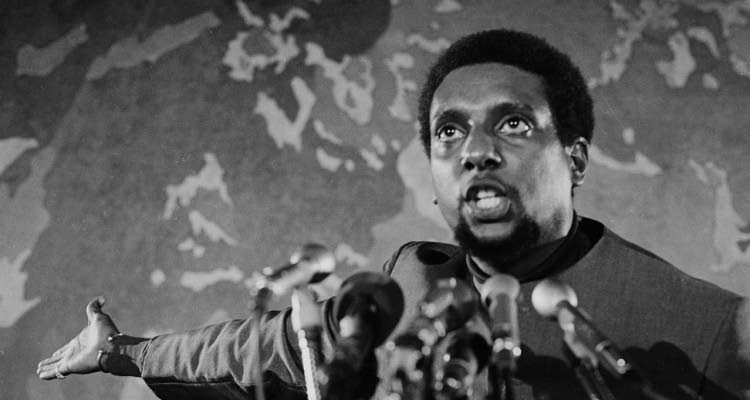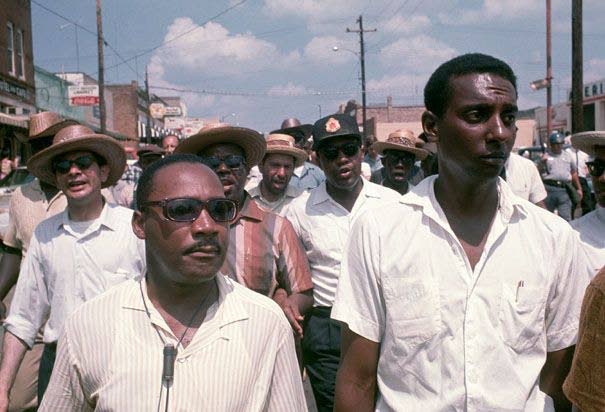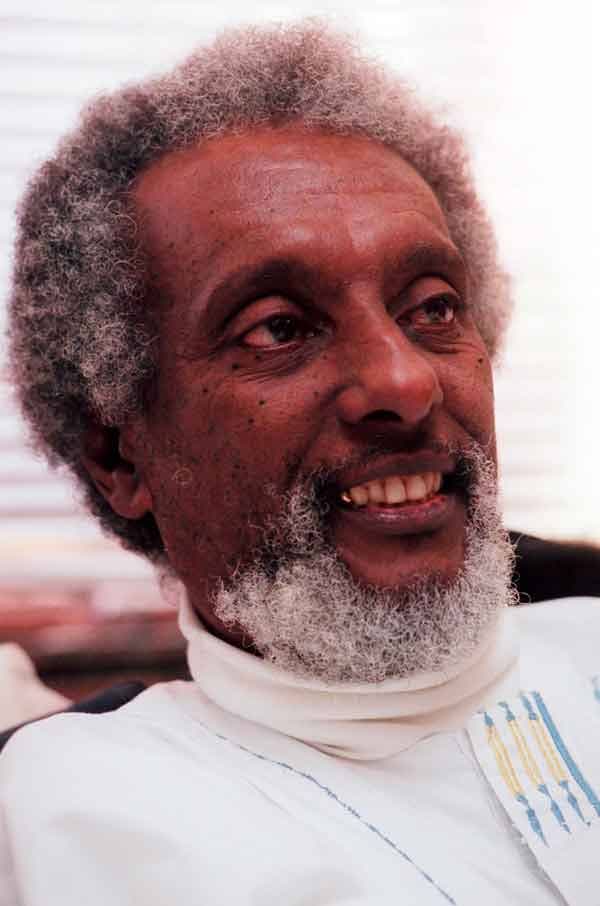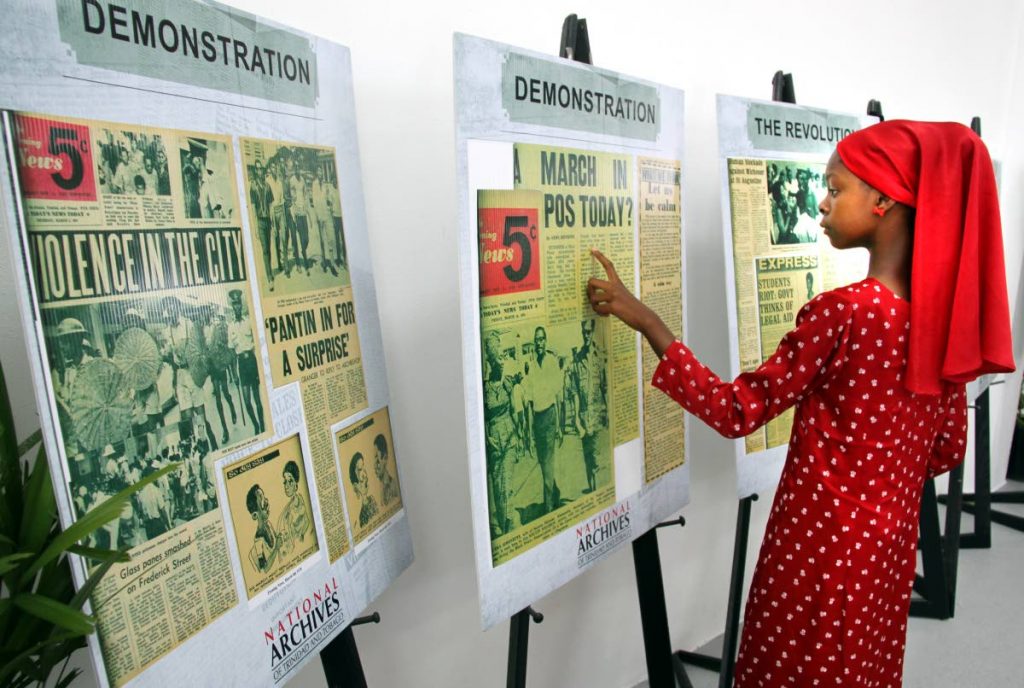Kwame Ture, a true Trini

Amandla Thomas-Johnson
A plan to rename a Port of Spain street in honour of Kwame Ture would be a “fitting tribute” to the Black Power icon.
Ture's son, Bokar Ture told Sunday Newsday he is “excited” that authorities in the capital are considering the move and said despite his father's living abroad for most of his life, he always “carried his Trini identity with him.”
His intervention comes shortly after Kenyan novelist Ngugi wa Thiongo told an audience at last month’s Carifesta XIV that the country ought to honour its heroes and build “monuments to our glory,” adding to growing calls for public spaces to better reflect the heritage and values of TT as an independent nation.
There was debate on social media in early August, after it was reported that deputy mayor of Port of Spain Hillan Morean had said the city corporation was considering a request from the Emancipation Support Committee (ESC) to rename Oxford Street after Ture, born Stokely Carmichael.
Speaking from Paris, 38-year-old Bokar, the elder of Ture's two sons, told Sunday Newsday: “I’m excited. I think it will only be fitting given the huge impact Kwame Ture had not only on the civil rights movement in America, but also around the world as a leading Pan-Africanist.
“A lot of countries have retaken ownership of their streets and made it something that reflects the local reality.
“TT needs to honour its own heroes. We’ve been independent for many years now.”

Born in 1941 and raised by his grandmother in a house on Belmont’s Oxford Street, Carmichael as he was then known, left Trinidad to join his parents in Harlem, New York when he was 11.
By the time he enrolled to study philosophy at Howard University in Washington DC in 1960, the Civil Rights movement was in full swing. He became one of the Freedom Riders – the daring young activists who rode segregated buses in an effort to smash racial segregation in America’s South.
Dashing, witty and charismatic, he would rise to become a major civil rights leader, second only to his friend and mentor Dr Martin Luther King.
His call for Black Power in 1966 would reverberate globally. When TT had its own Black Power revolution in 1970, the authorities, fearful of his influence, banned him from returning home.
As part of a global tour in 1967, he spoke alongside Fidel Castro in Cuba, dined with Ho Chi Minh in Vietnam and debated with Kwame Nkrumah, who lived in exile in Conakry, Guinea. He was just 26.
At the invitation of Guinea President Sekou Toure and Kwame Nkrumah, he relocated to Conakry in 1969 with his wife at the time, South African singer Miriam Makeba, later changing his name to honour his two revolutionary heroes.
For the next 30 years he would remain a Pan-Africanist of global standing, the latest in a series of such figures from TT, including Henry Sylvester Williams, CLR James, George Padmore and Claudia Jones.

Working in the spirit of internationalism, Ture also supported movements for justice as far away as India, Ireland and Iran.
Yet even in West Africa, Ture remained conscious of his roots, Bokar said.
“He saw the move to Africa as just an extension of his roots. That move didn’t really remove him from that Trini identity that he always carried.”
In 1996, the ban now lifted, he returned home at the invitation of the ESC and was honoured as a national hero.
But he was already sick: cancer had taken hold. The state stepped in to assist with his medical care.

His return was deeply symbolic, said his son.
“You’re banned from a country for so long and you come back and get a hero’s welcome.”
“We’re grateful that the TT government looked after him,” he added.
Ture died in Guinea in 1998.
Speaking at Carifesta, Thiongo said monuments associated with colonialism were meticulously preserved while those of local heroes were left to fall into disrepair.
“Monuments to our shame are well taken care of, monuments to our glory are often not taken care of,” he said, days after witnessing that CLR James’ grave in the Tunapuna cemetery had become overrun by tall grass, his former home crumbling.
Thiongo said he supported a tribute to Ture and it was now time to decolonise memory.
“We need to build monuments, because when we do we create a different memory, we don’t have to take the memory of those who were against us.”
Thiongo, who is often tipped to win the Nobel Prize in literature, also argued that as well as having a social impact, monuments could also have an economic benefit. It was on Oxford Street itself, a block from the house where Ture was raised, that the campaign to revive his name began.
Dressed in a blue and white dashiki, Shabaka Kambon stood on top of a truck to address a crowd that had gathered for the 2017 Emancipation Flambeau procession.
He told the daily Newsday this year: “I asked if they agreed that the street should be named in Kwame Ture’s honour, and the answer was overwhelmingly, 'yes.'”
Impressed with the response, the ESC wrote to city mayor Joel Martinez with a request to rename the street.
Kambon said the campaign had grown out of his work heading the Cross Rhodes Freedom Project, which successfully campaigned to remove the name of British imperialist Alfred Milner from a hall at the UWI campus, St Augustine.
The imperial adventures of avowed “British race patriot" Milner included a stint as a colonial administrator in South Africa, where during the Second Boer war at the end of the nineteenth century, he was responsible for herding women and children civilians into concentration camps, killing tens of thousands.
Kambon said: “This generation is claiming, or reclaiming public spaces from history's darkest epochs in order to honour humanity's highest values.”
He said by not honouring national heroes in public spaces, “We are failing to allow them to inspire another generation.”
Ture and others “represent our highest ideals…the apex of our righteous courage.”
Inspired by the Rhodes Must Fall campaign in South Africa, Kambon says the movement to decolonise public spaces is also gaining ground in Britain and Germany, but adds that “people are going to have to demand” that Oxford Street is renamed after Ture.
Kambon said: “It’s important for us here in the Caribbean to demonstrate to the rest of the world that we have the capacity to understand our past, the courage to confront it, and the will and moral character to choose a better future.”
This is not be the first time renaming a street after Ture has been discussed.
At the time of the Black Power revolution in 1970, a rumour reached the British High Commission in Port of Spain that Black Power leaders had changed Frederick Street’s name to Stokely Carmichael Street.
In a diplomatic cable to the Foreign and Commonwealth Office in London, high commission official JH Fawcett wrote: “The Black Power leaders here made a great hero of Carmichael in their speeches; and just as they renamed Woodford Square ‘The People’s Parliament’ they renamed Fredrick Street ‘Stokely Carmichael Street.’”
The cable, written on June 26, 1970, also details speculation that had the National Joint Action Committee (NJAC) and the mutineers overthrown Eric Williams’ government, Carmichael would have been installed as prime minister.
“One of the unanswered questions which has been nagging at me is whom the mutineers and NJAC, had they been successful, intended to install as prime minister,” Fawcett wrote.
Having asked a junior official, he added, “He told me that he had heard, and believed, that the new prime minister was to have been Stokely Carmichael.


Comments
"Kwame Ture, a true Trini"